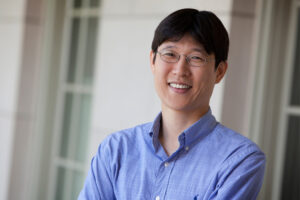The world's prolific use of single-use plastic products, such as water bottles and plastic bags, produces about 300 million tons of plastic waste annually. While recycling programs exist, only 7-9% of plastic waste gets recycled, 12% is burned and the rest accumulates in landfills and pollutes the environment, according to the United Nations Environment Programme.

Tae Seok Moon, an environmental engineer at the McKelvey School of Engineering at Washington University in St. Louis, plans to address the plastic waste problem with a bacterium that would upcycle the plastic into a value-added chemical. His work got a boost from a three-year $861,571 grant from the U.S. Department of Energy.
/Public Release. This material from the originating organization/author(s) might be of the point-in-time nature, and edited for clarity, style and length. Mirage.News does not take institutional positions or sides, and all views, positions, and conclusions expressed herein are solely those of the author(s).View in full here.






